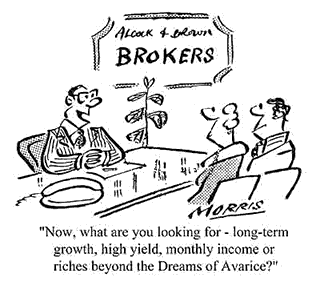US stocks are overvalued.
This is something that investors need to be aware of and that is what most sensible valuation measures say. Because history shows that buying investments when they are expensive usually means you end up with poor returns.
That’s why you want to avoid buying an overvalued stock market.
The issue is, the US has been overvalued on these same sensible measures for a very long time.
Could stocks stay at these levels for a lot longer than anyone thinks? Or is this just yet another sign that we’re near the top of the market?
Our favourite valuation ratio
The cyclically-adjusted price/earnings ratio (Cape) is one of the most favourite valuation measures. You’ve probably heard different analysys go on about it plenty of times in the past. But just in case you’re not sure what it is, here’s the brief explanation.
A traditional price/earnings (p/e) ratio takes a share price (or the value of an entire market), and divides it by earnings per share. So it’s the price you’d pay, divided by the profits the underlying investment makes.
This gives you an idea of how expensive a market or stock is. The higher the p/e, the more you are paying for a given pound or dollar of earnings. In other words, a high p/e is expensive and a low one is cheap, all else being equal.
This is all very well. But one of the many problems with the p/e ratio is that earnings tend to go up and down from year to year. Lots of companies work in boom and bust industries, for example.
If you look at the price of a housebuilding stock during a housing boom, the p/e is likely to be low compared to lots of other stocks, because earnings are unusually high. But that’s because earnings go up and down a lot in the building sector. You can’t always expect this year’s earnings to reflect next year’s – particularly if a housing bust is looming.
It’s a similar issue for mining stocks. The current p/e might look low. But a plunge in commodity prices might mean that next year’s earnings are a lot lower than this year’s.
How do you get a more reliable earnings figure? That’s where the Cape comes in. The ratio was created by professors Robert Shiller and John Campbell. It takes average earnings over a ten-year period, adjusted for inflation. A decade should be long enough to cover a full business cycle. And so it means you don’t get fooled by the bad years or the good years into thinking that a stock is cheap or expensive.
So that’s the Cape. It doesn’t tell you exactly when to buy or sell. But it does give you a decent long-term view of how expensive or cheap a market is. That matters. Because if you want to make money in the long run, you want to buy assets when they’re cheap, and sell or at least ease up on them when they’re expensive.
Does the Cape still work?
Thus, what does the Cape say today? The most widely-studied market is the US, which is handy, because it’s also the most important globally. And currently, the Cape reckons US stocks are very overvalued indeed.
As Shiller himself notes in The New York Times, the Cape in the US is now over 25. This level “has been surpassed since 1881 in only three previous periods: the years clustered around 1929, 1999 and 2007.” As Shiller adds – probably redundantly – “major market drops followed those peaks.”
That sounds really, really scary.
The problem is it’s been high for a long time. As Shiller notes: “It’s been relatively high – above 20 – for almost all the last 20 years, with the exception of 20 months, mostly in the recession of 2007-9, when prices tumbled and it fell as low as 13.32”.
And that’s got Shiller wondering whether there’s a good reason for this. He notes that bond prices are unusually high, and so interest rates are unusually low, which might help, as it makes the returns on stocks look attractive even when they’re relatively low by historic standards.
He also wonders if this is maybe because people are still so rattled about their future job security and incomes that they are keen to pile into investments to make up for it.
He’s not entirely convinced by either explanation. But it’s always worrying when the highest-profile bears start to question themselves. To be fair, Shiller isn’t a bear as such – he usually positions himself as an interested observer. But his theory garners a great deal of respect. So it’s worth paying attention to his doubts.
Is the Cape ‘broken’?
How to cope in overvalued markets
Some markets undoubtedly deserve to trade on a higher long-term Cape ratio than others. The US and the UK are politically stable and have long track records of rewarding investors in the long run. So it probably makes sense that investors will always be that bit more willing to pay up for those stock markets than they would for Russia or China, say.
But America’s over-valuation goes well beyond this.
I think there are two key things going on here. Firstly, investors have been thoroughly conditioned to have faith in central banks. If anything has skewed the Cape ratio over the past 20 years, I’d think that the unflagging, unquestioning support of central banks and politicians has got to be part of the answer. You might not like what central banks have done, but “Don’t fight the Fed” has unquestionably been a good investment strategy.
But I still don’t think that can prop up markets forever. So the second key point is a far more prosaic one. The fact is that valuations can be out of step with ‘reality’ for much longer than anyone – even the most patient investor – expects.
We should all understand this by now, but our brains keep fooling us. When something seems obvious – like current overvaluations – but the market doesn’t react, we start to assume that we must be wrong. We look for reasons why our valuation indicators have stopped working, rather than just understanding that sometimes these things take time.
In any case, another of Shiller’s measures points to reasons for caution. He’s also been measuring confidence in market valuations since 1989. In 2000, when the US Cape hit its highest level ever (44), confidence hit a record low. This year, confidence slid again, and is at its lowest level since 2000.
Is another correction in the making? I’m not willing to bet against it. How do you cope as an investor?
Don’t pull all your money out of the market and go to cash. Market timing is pointless and frustrating. But what I would suggest is to look at your asset allocation. Put less money in overvalued markets, and more money in undervalued markets. Also, consider drip-feeding money into markets – it means you automatically buy fewer shares the more expensive they get.




